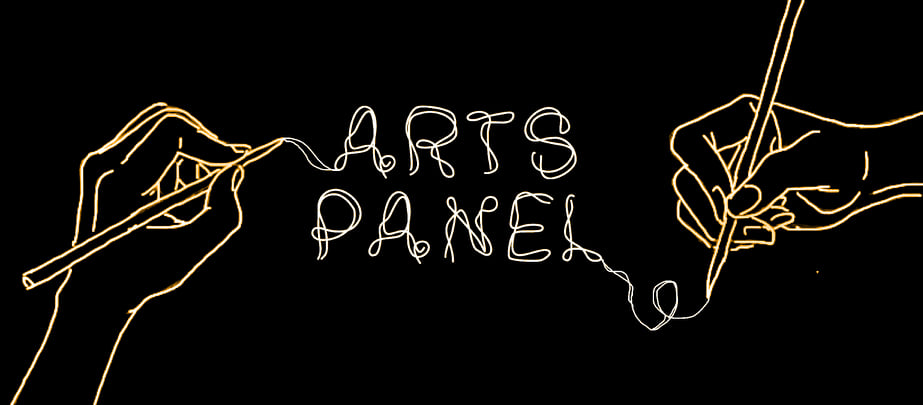
The Partisan
Given the perpetuation of disinformation and the influence of Roko’s basilisk, it seems to me that this story, which I have already erred in telling, is not quite the truth.
The events herein take place in a moment of repression and rebellion. We speak of a nation divided, and a small group with a loud voice speaking to a silent majority. A group of people dissatisfied with the status-quo; mired in the go-between of violent and non-violent action against a government with a loosening grip on its people. We recite the death of their leader, Gustavo Kermana. His name has been given to a tree-lined avenue on the north side of the river, which serves as the location of a prestigious school, as it always has. A street that used to bear the name of someone else, one whose statue was torn down long ago.
Our orator is Aliya, the martyr, the partisan. Gustavo Kermana was her great-uncle. Aliya made her name as a journalist and podcast-maker. She brings history to life through audio. Millions listen to her work to bear them through everyday trivialities. She is a data miner: deft at extracting narratives from the petabytes of stories from the lives we have lost. She is an author, narrating the past to make sense of it, to cut through the rubble – to find the story that all stories collapse onto. To let its pure song sing.
In order to work on Gustavo’s death, Aliya does what is her nature. She commands her voice assistant to block all notifications while carefully wiping the pollutant particulates that have settled on her screen. Aliya then sits on her Zafu for twenty-three minutes, waiting for the calming recording of a gong to go off. She refrigerates nutritional shakes made mostly of maltodextrin, braids her hair with care, and only then begins adjusting the programming of her crawlers. She sets them to seek for patterns in the cacophony of information from generations past. They begin sifting through inconceivable amounts of images, text, GPS coordinates, psychometrics, accelerometer readings, and biometric data, as the prospectors in the rivers of the Klondike did. But they are searching for nuggets which contain material far more valuable to her than gold; glimmers of truth or perhaps, if she is lucky, story.
Her hunger is for exegesis, the sticky notes on her desk sketch out the object of interest: Kermana, a user adept at operating between chatrooms and graffiti, subreddits and picket lines – to put it crudely, between retweets and Molotovs. His smile was tattooed onto ribcages, his mottos stencilled underneath classroom desks. Like Moses from the land of the Moab, who was never able to step foot in the promised land, Gustavo died the day before the government fell.
While Aliya’s archive-crawler neural nets go on a deep dive, they uncover detail. Gustavo died on a livestream during the most important E-sports tournament in his country. The livestream was unofficial; it was only viewed by 12,436 people. It came from the phone of seventeen-year old @gonst_d. In it, Gustavo is stood in a partisan-controlled gaming arena, watching his favoured team; the crowd looks to his reaction at the end of each game. Aliya slows her breath as she watches the particulates of the fans’ saliva spurt into the crowd as they jeer and scream. Gustavo’s wily smile presides over the proceedings. Until, with six minutes remaining in the final tie-break, a drone the size of a thumb lands on his head and his brain is distributed across rows A-C, seat numbers 109-118. The crawlers find replications connected by the same sound and images, later clips that were viewed more times, uploaded, banned and re–uploaded. The violent content – and government persecution – led to the breaking of terms and conditions read little more than those texts in the library of Babylon.
Aliya sucks on her double-choco-hazelnut sludge, begins to notice a pattern; the facts seem to be cyclical, they repeat those of other places, other eras. On Gustavo’s phone lay one unencrypted text, unread, telling him not to go to the arena. The day of his assassination, Abraham Lincoln received a letter on the way to the theatre; this too remained unopened, this too urged him not to go to the show. That evening, his wife Mary-Todd awoke from a dream where the keys for the private drawers of the Oval Office had been stolen from their bedside. The night before his murder, Gustavo’s encryption key was hacked. Lincoln’s murderer was an actor at the theatre he was attending when he died. Gustavo’s was a gamer at the tournament he was watching.
The neural-network shudders. It pursues two lines of time across the holographic space between the digital and physical. It suggests to visualise two entities sauntering along the curve of time, crossing an Einstein-Rosen bridge. The podcaster silently closes her eyes. Aliya sees the arrow of time as a fractal, two straight lines in a tesseract, flickers of Poincaré recurrence, of the transmutation of atman into brahman, the circle of Samsara. She thinks that before being Gustavo Kermana, he was, perhaps, Abraham Lincoln.
In this curious haze, she awakes from her amphetamine–fuelled microsleep. She catches one of the last lines from Gustavo’s account in the rebel’s primary chatroom:
“I’m as honest as you can expect a man to be in a world where it’s going out of style.”
The partisan was a man of flair, but this is too much; then again:
“Listen, Dundy, it’s been a long time since I burst into tears because a policeman didn’t like me.”
Then more, and more. All lines from The Big Sleep or The Maltese Falcon, scripts of old movies transmuted into voice–notes, GIFs or seven second videos.
Moore’s law gifting 20/20 electronic hindsight. The program converges upon @Aur0ra – like the stream of petals from a chrysanthemistic core, all datapoints, all leads lead back to her. The jigsaw pieces coalesce; the eager networks convalesce. Aliya, always seconds late, peers at the screen. How revealing, that people love things. Aurora, Gustavo’s primary co-conspirator, is an organiser of LARPs – large–scale IRL roleplaying events. LARPs centred around immersive visits to the Civil War, around Humphrey Bogart and 1940s film noir.
The pieces seem to get further apart the more they begin to fit in. Until, flicking through various sub-rooms of Signal chatrooms and darknet forums, Aliya finds a set of orders from Gustavo, for the killing of a mole in the resistance who had been feeding information to the state cybersecurity command. The mole had begun to feed information when the movement gained traction, when the forums emptied and the conversation moved into social media and town squares.
It is Aurora who is given the crucial task to uncover and eliminate the traitor. It is then that Aliya understood why her ancestor died.
Gustavo was killed on a livestream, his death mediated by images, replicated by memes remixed and retweeted into the undeletable memory of everyone and no–one in particular. The narrative that came out of these multiform messages arose from the ability to mix pop culture with life, play with life, to inform and disinform simultaneously. The way it went is irrelevant; the way it was told is eternal.
You see, four days before Gustavo’s death, the country was ripe for change: masked protestors now crossed the socio-economic spectrum, and foreign disinformation in support of the rebels filled the algorithmically predicated ideas overwhelming everyday citizens. Aurora worked swiftly to find the mole, and soon found that the mole was simply Gustavo himself. Thus, the conspirators agreed to the death of their own leader; Gustavo himself gave the order for his own execution, yet he pleaded that this not harm the movement.
Aurora concocted a plan only she could. The protestors looked to Gustavo Kermana as they looked into their own souls, his image permeating profile pictures and graffiti, a hypersigil for the anguish of generations. The execution of the mole had to be used to hasten the emancipation of the people. The leader would be killed in events that would become legend and invigorate the will to finalise the struggle. Gustavo agreed to everything, to finish what he started and ensure his name would echo through the annals in praise.
Aurora, thrown into her planning with haste, could do little but plagiarise and reinterpret lines, acts and moves from those works that she knew best. As such, she reused scenes, dialogue, and themes from Bogart, Welles, and, of course, her darling, the Civil War. As Daniel Day-Lewis did for Spielberg, Gustavo threw himself into those words. Unlike Day-Lewis, he added his own flair. Hundreds of fans, commenters, agitators, and collaborators played their parts, some knowingly and others unknowingly. The death of Kermana was told by millions on both sides. Some knew of its origin, but most simply played along. The difference between the two was slim, if there at all. The revolt itself was a saga; this its final act. As Gustavo bled through the screens of thousands, the work was firmly written.
On knowing this, Aliya sits for a long time. She considers her work, that of her ancestor and that of Aurora, a comrade ‘til the end. She switches off her screen, and gazes at the tree-lined avenue. She decides not to include any of this (his treason? / the truth? / the mythmaking?) into her podcast on Gustavo.
It is heard by millions. ■
Words by Philip Tomei. Art by Luca Thompson.






